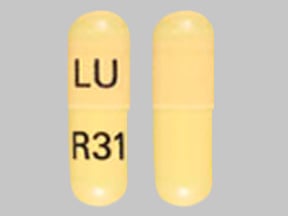
Mefenamic Acid Coupons & Savings Card – Discount Prices from $31.58
My prescription
Edit
250MG, Mefenamic Acid (30 Capsules)
Select pharmacy

CVS
$31.58
COUPON PRICE
Walgreens
$42.30
COUPON PRICE
Albertsons
$45.74
COUPON PRICE
Walmart
$71.66
COUPON PRICEMefenamic Acid savings card
Show this card to your pharmacist
CVS
$31.58
BIN
ID
PCN
GRP
019876
LHF3C33C41
CHIPPO
LHX
Powered by
More prescriptions for pain
More prescriptions for pain
Mefenamic Acid dosage forms
Dosage Quantity Price from Per unit 250MG 30 Capsules $31.58 $1.05 250MG 60 Capsules $44.87 $0.75 250MG 90 Capsules $58.15 $0.65
| Dosage | Quantity | Price from | Per unit |
|---|---|---|---|
| 250MG | 30 Capsules | $31.58 | $1.05 |
| 250MG | 60 Capsules | $44.87 | $0.75 |
| 250MG | 90 Capsules | $58.15 | $0.65 |
Mefenamic Acid Warnings
Mefenamic acid, a nonsteroidal anti-inflammatory drug (NSAID), is associated with several important safety warnings and considerations. It is crucial to be aware of these risks and take necessary precautions. Below are key points that should be reviewed before starting this medication:
Heart Risks: There is an increased risk of heart attack or stroke with mefenamic acid, which can occur any time during treatment, especially with long-term use or in individuals with pre-existing heart conditions. It is not recommended for use before or after heart bypass surgery. Seek immediate medical attention if you experience chest pain, trouble breathing, or sudden weakness on one side of the body.
Gastrointestinal Bleeding: This medication can cause serious stomach or intestinal bleeding, which may occur without warning and is more likely in older adults or those with a history of ulcers. Symptoms include persistent stomach pain, black stools, or vomit resembling coffee grounds. Discontinue use and consult a healthcare provider if these symptoms occur.
Liver Damage: Rarely, mefenamic acid can lead to severe liver damage, especially if combined with other liver-impacting drugs like acetaminophen. Be alert for signs such as yellowing of the skin or eyes, dark urine, or unusual fatigue, and seek medical advice if these occur.
Blood Pressure and Heart Failure: The drug may cause fluid retention, leading to high blood pressure or heart failure, particularly in patients with existing heart problems. Monitor for symptoms like chest pain or irregular heartbeat and report any concerns to your healthcare provider.
Kidney Issues: Mefenamic acid can harm the kidneys, especially in those with pre-existing kidney conditions or those on certain blood pressure medications. Observe for changes in urination patterns and consult your healthcare provider if changes occur.
Asthma and Allergic Reactions: This medication may trigger severe asthma attacks or allergic reactions, particularly in individuals with known sensitivities to NSAIDs or aspirin. Immediate medical help is necessary if you experience difficulty breathing or facial swelling.
Pregnancy and Breastfeeding: Use of mefenamic acid during pregnancy, especially in the later stages, or while breastfeeding is not recommended due to potential harm to the fetus or complications during delivery. Discuss alternatives with your healthcare provider.
Anemia Risk: There is a risk of anemia due to bleeding, particularly when combined with other medications that affect blood clotting. Symptoms such as fatigue, pale skin, or dizziness should be reported to your care team.
Contraindications: Do not use mefenamic acid if you have a known allergy to NSAIDs or have experienced asthma attacks or allergic reactions from such medications. It is also contraindicated following coronary artery bypass graft surgery.
Always discuss your medical history and current medications with your healthcare provider to determine if mefenamic acid is appropriate for you, and closely monitor for any adverse effects during use.
Mefenamic Acid Side Effects
Common side effects:
- upset stomach
- nausea
- diarrhea
- gas
- constipation
- heartburn
- dizziness
- headache
- rash
Less common but important to monitor:
- blurred vision
- dry mouth
- fast heart rate
- fever
- infection
- anxiety
- high blood pressure
Serious side effects:
- stomach bleeding
- heart attack
- stroke
- heart failure
- liver issues
- kidney problems
- serious allergic reactions
- serious skin reactions
Mefenamic Acid Interactions
Interactions with high risk of serious adverse effects and should be avoided:
Interactions with moderate risk that may require dose adjustment, closer monitoring, or timing changes:
